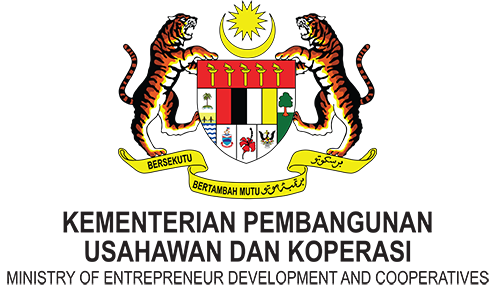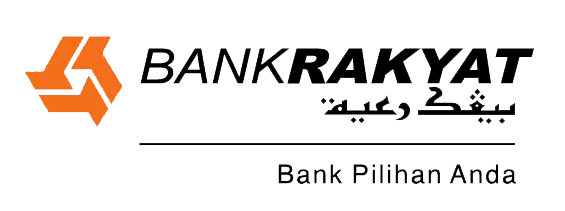
It is important to spur SME growth in the halal industry, as SMEs are the backbone of the country’s growth.
Medac and SME Corp jointly enhance the capacity and capability of SMEs to tap into halal opportunities
KUALA LUMPUR: It is estimated that by 2030, the global halal market will reach US$5.0tril (RM20.92tril), while the domestic market is expected to reach US$113.2bil (RM473.57bil).
Moreover, Malaysia’s halal industry contributed about 7% of the country’s gross domestic product (GDP) in 2020, which shows that Malaysia has proven successful in leveraging its potential as a Muslim-majority country.
Among the key strategic interventions under the 12th Malaysia Plan (12MP) is to boost economic growth by enhancing the competitiveness of the halal industry, in order to capture a larger share of the global halal market.
Such economic growth will in turn increase the demand for halal products, enabling the creation of new opportunities for more halal entrepreneurs to participate in the industry.
In line with the strategic intervention stipulated under 12MP, the Ministry of Entrepreneur Development and Cooperatives (Medac) has identified several initiatives to enhance the capabilities of entrepreneurs and cooperatives in the halal industry.
These initiatives include consultation for halal certification, the development of halal product branding, the improvement of manufacturing processes, training and human capital, as well as export incentives.
Enhancing SME capabilities
The four main programmes that have been introduced are the Halal Outreach Programme for Entrepreneurs (HOPE), the Product Transformation Programme (PuTRA), the Halal Technology Transformation Programme (HTTP), the Product Registration Incentive (PRInce) and the Market Access Incentive (MASSIVE).
These programmes are also in line with the National Entrepreneurship Policy 2030, in which the halal industry has been identified as one of the strategic sectors; as well as the Halal Industry Master Plan 2030 (HIMP 2030), under the sixth strategic thrust to produce more halal champions among local industry players and entrepreneurs.
As the central coordinating agency for small and medium enterprises (SMEs), SME Corporation Malaysia has been appointed as one of the agencies to implement halal development programmes, in collaboration with other agencies such as the Department of Islamic Development Malaysia (Jakim) and the State Islamic Religious Departments.
Since September 2020, SME Corp Malaysia has been mentoring 62 SMEs under Medac’s halal programme.
As one of the appointed agencies, SME Corp Malaysia is also collaborating with Halal Development Corporation through specific programmes to enhance the capabilities of SMEs.
Its chief executive officer Rizal Nainy said that as the agency responsible for coordinating SMEs development, SME Corp Malaysia has implemented various programmes and initiatives to ensure that SMEs remain competitive and resilient in today’s ever-changing economy.
“The initiative covers five key areas, namely capacity and capability development; high growth sector development, innovation and digitalisation; access to markets; access to financing, as well as inclusive development.
Fulfilling halal requirements
Rizal said that the initiatives introduced by Medac – which are currently being implemented by SME Corp Malaysia – covers every touchpoint in the entire halal ecosystem, in order to further spur the growth of the industry.
He said, “Under Medac’s halal development programmes that are being actively implemented, SMEs are provided with assistance that addresses various aspects of an entrepreneur’s needs in the halal industry.”
Addressing the challenges faced by entrepreneurs in obtaining halal certification is the HOPE programme.
Under this programme, halal development officers will assist SMEs in obtaining halal certification to enable them to reach a larger consumer base, penetrate new markets and improve confidence among consumers.
“One of the main challenges faced by SMEs is the lack of knowledge on the process of acquiring halal certification.
“Even though Jakim has provided detailed information on the procedures and standards, SMEs still need to be monitored for additional guidance to complete the certification process.
“Guidance, especially for micro enterprises, must be provided as they are normally faced with a lack of knowledge in preparing the documentation required for halal applications,” he pointed out.
Another main challenge in obtaining halal certification is financial constraint, as there is cost incurred in complying with halal requirements.
He said, “There will undoubtedly be costs incurred, including for factory renovation, documentation and other related costs, such as raw material analysis and material testing documents.
“It is crucial for SMEs to be really committed to ensure that they can complete the process of obtaining halal certification.”
Strengthening halal SMEs
Even after obtaining halal certification, a big hurdle that SMEs face in penetrating the halal market is ensuring sufficient production capacity to meet demand.
Thus, Rizal stressed that it is important for SMEs to increase their production capacity and productivity to cater to the demand expected by their customers.
“The HTTP programme is designed to assist SMEs in managing and improving their manufacturing processes through the adoption of system automation.
“Hopefully, this will then increase their manufacturing capacity and increase their production yield,” he explained.
Meanwhile, PuTRA is specifically crafted to increase the commercial value of halal products through improved branding, packaging and labelling – an area that SMEs are traditionally weak in.
PRInce and MASSIVE, on the other hand, will help SMEs with halal products to penetrate foreign countries such as Japan and other potential international markets.
“The branding and packaging of halal products also need to be customised based on the needs and requirements of both the domestic and international markets,” he advised, adding that different countries possess differing regulations.
He said, “For example, the packaging requirements in the Middle East are different from the ones being used in East Asian markets.
“Among the key differences are packaging details, approval by health authorities and more importantly, the quality of the product, which must be consistent and guaranteed.”
SME Corp Malaysia also coordinates and facilitates, as well as provides the business support required by SMEs.
As such, aside from the halal programmes under Medac, SME Corp Malaysia also provides other assistance to SMEs, which includes consultation, advisory services and financing, in the form of grants and soft loans.
“In terms of financial assistance offered to SMEs, it includes facilitation for SMEs to obtain internationally accepted certification such as halal and hazard analysis and critical control point certification.
“Assistance related to product development, innovation productivity, automation, brand development, improved packaging and labelling, as well as adoption of e-commerce and ICT applications are also provided to SMEs,” he shared.
With SMEs being the backbone of the nation’s economy, focus on implementing these measures and programmes are necessary to spur the growth of these smaller businesses in the halal industry, in order to improve SME contribution to the GDP.
He said, “Therefore, we will continue to give priority to the development of SMEs in the halal industry by making sure that all the halal-related programmes are being implemented effectively.
“It is our hope that the Government’s efforts can eventually contribute towards greater SME involvement in the halal industry, both domestically and internationally.
“SMEs assume a vital role by contributing along the supply chain that helps the growth of the halal ecosystem as a whole.” -- TheStar
























